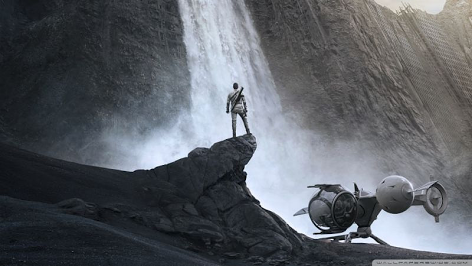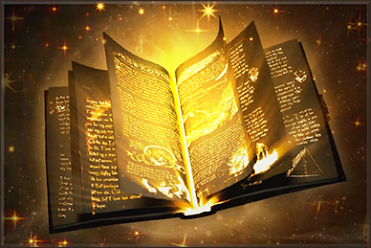Biography


In January 2015, an artist called Renaissaint launched his first attempts in, what he called, Mimetic Sound Design on the worldwide web. To avoid any confusion, his debut was accompanied by a manifest (On Mimetic Sound Design) that was recited at the Zurich Art fair in the same month. “Not being a musician, how am I supposed to make music?” he asked rhetorically, after which the concept of Mimetic sound design was introduced. “Do you have to be a tailor, to pick out your clothes? Sound design is not making music, it’s putting auditive stimuli in juxtaposition”. The manifest also refers to the mimetic aspect, explaining how Renaissaint prefers to use his sound collages to emulate aspects of reality, rather than to express emotions.
The first EP, Missing Matches, became an instant success in clubs all over Asia and consists of legendary tracks as Home Alone (‘the typewriter song’) and the deep bass groove Swampagne, that is actually grounded on the rhythmic pattern of Harold Faltermeyer’s classical Axel F. Some controversy was caused by Bach-anal (a one-track only tribute to, indeed, Johan Sebastian Bach) and even more by Morning Prayer. Intended as an tribute to life in Istanbul, the song became popular in xenophobic subcultures, being abusively interpreted as anti-islam statement.
The Missing Matches EP caught the eye –or shall we say ear?- of a young, innovative Finnish film director, called Aatto Koskinen. He asked Missing Matches (believing this was actually the artist’s name) to write the score for his independent sc-fi movie Entering Zone 6. Misfortune hit Koskinen, when his sponsors decided to withdraw from the project, after hearing the phenomenal soundtrack, stating that “The footage adds nothing to the score”.
The Missing Matches EP caught the eye –or shall we say ear?- of a young, innovative Finnish film director, called Aatto Koskinen. He asked Missing Matches (believing this was actually the artist’s name) to write the score for his independent sc-fi movie Entering Zone 6. Misfortune hit Koskinen, when his sponsors decided to withdraw from the project, after hearing the phenomenal soundtrack, stating that “The footage adds nothing to the score”.


Together with the score, a mini dance-EP called ‘Festival’ (a collaboration with composer Benn Nemor) broke all records in Bangkok nightlife. Rumours say that more than 1,000,000 illegal Missing Matches cd’s are going around in Bangkok only.
Maybe somewhat presumptuous because of these successes, Missing Matches (as Renaissaint now officially called himself), started working on the Meta-music EP, that was received with low alacrity, and even with cynism. One critic wrote: “So now he does pretend to make music?” Missing Matches’ defense that “he was not making music, only exploring the world behind music”, could not save the Meta-music project from failure. In spite of the negative response to the project, Post Nuclear Pastorale has turned out to be an ageless masterpiece.
To win back his fanbase, Missing Matches launched his second eponymous Missing Matches EP soon afterward. This EP contains classic pieces like the horrifying Guernica, the annoyingly funny Tale of the frenzied music box and the drunk carriloneur and Aquarium, which was bought by National Geographic and can now be heard in many underwater documentaries. Missing Matches was embraced by his Asian fans again, and he started touring through Thailand, Nepal and even Tibet in summer 2015.
To win back his fanbase, Missing Matches launched his second eponymous Missing Matches EP soon afterward. This EP contains classic pieces like the horrifying Guernica, the annoyingly funny Tale of the frenzied music box and the drunk carriloneur and Aquarium, which was bought by National Geographic and can now be heard in many underwater documentaries. Missing Matches was embraced by his Asian fans again, and he started touring through Thailand, Nepal and even Tibet in summer 2015.



A reflection on travelling 600 miles on the Tibetan Friendship Highway is the piece Tarmac Mania, released almost a year later in Summer 2016, together with some other rarities like Lungo (a piece that was written for a Nespresso commercial but was rejected by George Clooney himself, saying that “it’s making him drowsy, which is not the purpose of a coffee commercial)”, Interstellar warble and some unexpectedly succesful pieces of funeral music (yes, he used the word music indeed!).
Spring 2016 saw Missing Matches reunite with Aatto Koskinen, this time to write the score for a tv-series called Compendium Z. Also this second collaboration went hand in hand with setback, since the makers of Dragonball Z sued the two for plagiarism. Missing Matches and Koskinen won the court case, having convinced the judge with the statement that “the dispositon of every creative mind is restricted to the 26 characters of the alphabet”, which set a precendent for all future plagiarism trials. Hitting again the charts in Asia with Compendium Z, Missing Matches still failed to achieve comparable acclaim in other parts of the world.


Ironically, it was a complete Dutch project that caused Missing Matches’ worldwide breakthrough in autumn 2016. The pieces he wrote for the Dutch feelgood anime Jakkepoes went viral within 24 hours after release and has stolen millions of hearts all over the world ever since.
January 2017 saw the launch of his personal website. Coming up is of course more mimetic sound design, and a gig at the Biddinghuizen Lowlands festival in August this year! So whatever you do: make sure you don’t miss your matches!
January 2017 saw the launch of his personal website. Coming up is of course more mimetic sound design, and a gig at the Biddinghuizen Lowlands festival in August this year! So whatever you do: make sure you don’t miss your matches!